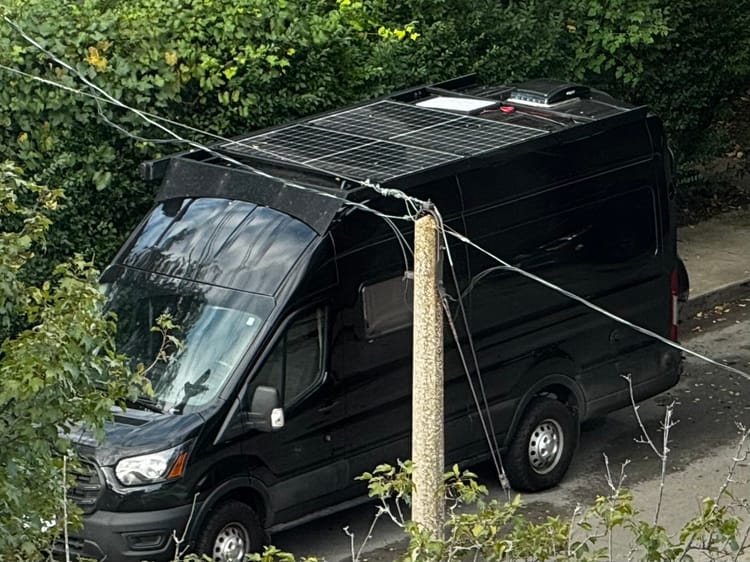The Comfort Zone: "Why Staying Safe Feels Good but Hurts You in the Long Run"

I can only really speak about how it hurts me, but at its core, the comfort zone feels like a place of safety and security. It's the environment where we operate on autopilot, facing little resistance or uncertainty. But here's the contradiction: the very things that make our comfort zone so appealing—ease, predictability, and the scarcity of discomfort—are the same things that suppress personal growth and lead to long-term dissatisfaction.
I know dissatisfaction all too well. We are good friends. It is only my friend, though, as people around me would say, “How can you be dissatisfied”? What else can you do in your life? Yet I do feel it. I want to do more; I want to experience more. As I write this, I realize that saying “I Want.” This is a personal desire, and it sounds wrong to say “I Want.” So perhaps a better way to put it is to say “I need” to live more. To feel alive. Or maybe I am overthinking; who me?
The day to leave has arrived. My in-person commitments are almost completed, and I can finally go. Why am I so nervous? Why can’t I leap for joy? In the short term, staying within my comfort zone brings immediate rewards. I feel relaxed, there's no fear of failure, and life runs so smoothly. They say, “This can create a false sense of satisfaction (false my ass!)—an illusion of control and contentment—(Illusion … hell no) because it’s based on avoiding stress rather than achieving progress.” But I love my comfort zone! It is a beautiful place. I know what to expect. I know where to park. I know what to eat and how to make it. I can make dinner and walk away, leaving the dishes for the next day.
The van has everything I need; it will become my comfort zone. It has warm clothes, shorts, and T-shirts, should there be a warm spell. There is cookware, internet, water, food… everything I need is aboard. However, I can not walk away and leave the dishes until the next day because the whole vehicle moves, including the kitchen. Stuff has to be put away.
Plus, I need to figure out where to go the next day, where I can park, and where it is safe to park. Or as part of getting out of my comfort zone, I just park. When you park your van at night, you need to stop and listen to your surroundings—is it safe? You listen to your gut, too; does it feel safe? I mean I am in a van, so its’s not that someone might break in so much, although I am sure that happens. It is more the knock of someone saying…. you can’t park here. So you leap out of bed and have to drive off and find a secondary place.
Why worry about that? I watch YouTube channels, and these occurrences are rare. And how bad is it that you have to move? So what. Just move. I am sure I will get comfortable. But for now, even with all the conveniences - all this is out of my comfort zone.
When will it become comfortable to do all of this? When will it become second nature? Weeks or Months. Once it does, what will I need to do to step out of it again? Well, I do enjoy street photography. So why not stay in major cities and leave the van to take photographs every day?
I am heading north to North Bay, then across the top part of Quebec, Canada, along the St Lawrence River. I have always loved waterfronts, so I think many of my travels will follow a waterway. Canada is pretty big; however, most of the country experiences winter, with the exception of parts of BC.
Although my van is equipped to survive winters, I am not sure I want to. I may cross the border and see if I can stay in that sweet spot that is not too hot or cold. Or do I stay in Canada, face the winter head-on, and stay out of comfort? Living in a van, equipped or not, in the winter will be a challenge.
While staying comfortable may protect me from immediate failure or the knock, it also prevents me from accessing growth. Growth only happens when we stretch ourselves, face risks, and enter the unknown. While waiting to leave, the lack of progress led me to feelings of boredom and dissatisfaction. The tasks I once found easy became mind-numbing, and the sense of security transformed into frustration.
Even worse, staying in my comfort zone for so long made me feel regret. Over time, I have learned that getting out regularly and trying new things or even trying old things in new places opens my mind and loads my brain with new ideas. It's like cleaning the slate or deleting all the files off the hard drive. The creativeness of photography allows me to clear the slate. The entire time I am in that state, it is all I am thinking about at that time and it clears space for new ideas.
True fulfillment lies in the growth zone—the place just beyond the edge of your comfort zone where I cultivate new skills, ideas, and perspectives. While this space feels uncomfortable, it’s also where real change happens. Pushing myself to learn new things, take risks, or face challenges is naturally uncomfortable, but it’s essential for my long-term satisfaction.
The paradox of comfort vs. growth reveals a crucial truth: while discomfort feels bad in the short term, it’s necessary for long-term fulfillment. The friction of new experiences polishes us, just as sandpaper shapes rough wood into something smoother and more refined. Without discomfort, there is zero progress; without growth, there is no sense of accomplishment. Dissatisfaction seeps in.
To escape the comfort zone, it’s important to start to shift our mindset and recognize discomfort as an ally rather than an enemy. And you don’t need to step far out of your comfort zone like me. This doesn't mean taking huge, reckless risks—it’s about embracing small, daily discomforts that gradually expand your abilities and view. Growth, after all, is a journey, not a destination. So the minute you say, I am comfortable, you need to get out. Get out of comfort, and stretch yourself just a little bit.
In my case, I wanted to see more of North America while still doing my job. I work remotely, so I can work from anywhere as long as I have internet. Am I nervous about this step? You betcha! But I know in my heart I have to do this. And if I can do this, what other things can I do? Where and when will dissatisfaction seep back in?
What part of your life are you dissatisfied with? What part of your life can you change? What if you threw caution to the wind and took that step? What could happen?



